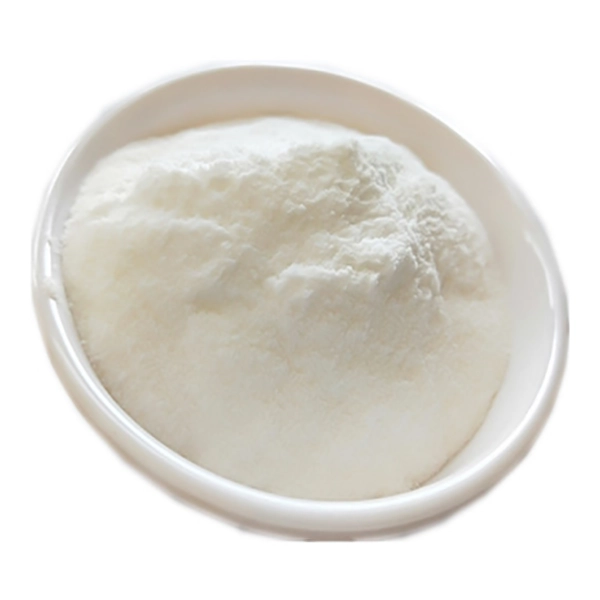+86-15212299029
- All
- Product Name
- Product Keyword
- Product Model
- Product Summary
- Product Description
- Multi Field Search
Views: 220 Author: tcchems Publish Time: 2025-11-21 Origin: Site











Content Menu
● The Safety of Kojic Acid During Pregnancy
>> Recommendations from Healthcare Providers
● Potential Risks of Kojic Acid
>> Vitamin C
>> Azelaic Acid
>> Niacinamide
>> Turmeric
● How to Approach Skincare During Pregnancy
>> Consult with a Healthcare Provider
>> Focus on Gentle Formulations
Pregnancy is a time of significant change, not only for the body but also for the skin. Many women experience various skin issues during this period, including hyperpigmentation, commonly referred to as the "mask of pregnancy." As a result, many expectant mothers seek effective skincare solutions, leading to questions about the safety of certain ingredients, such as kojic acid. This article explores the safety of kojic acid during pregnancy, its benefits, potential risks, and alternative options.

Kojic acid is a natural compound derived from fungi, particularly from the fermentation process of certain foods like soy sauce and rice wine. It is widely used in skincare products for its skin-lightening properties, primarily by inhibiting the enzyme tyrosinase, which is crucial for melanin production. This makes kojic acid a popular choice for treating hyperpigmentation, dark spots, and uneven skin tone.
The safety of kojic acid during pregnancy is a topic of ongoing debate among dermatologists and healthcare providers. While kojic acid is generally considered safe for topical use in cosmetics, there is limited research specifically addressing its effects during pregnancy. Most available studies focus on its general use rather than its implications for pregnant women.
Many dermatologists recommend a cautious approach when it comes to using kojic acid during pregnancy. The primary concern is the potential for absorption into the bloodstream, which could affect the developing fetus. Although kojic acid is not classified as a harmful substance, the lack of extensive studies means that its safety cannot be guaranteed.
Given the uncertainty surrounding kojic acid's safety, many healthcare providers advise pregnant women to avoid its use, especially in high concentrations or leave-on products. Instead, they suggest opting for alternatives that have a more established safety profile during pregnancy.
Pregnancy can make the skin more sensitive due to hormonal changes. This increased sensitivity can lead to a higher risk of irritation, redness, or allergic reactions when using active ingredients like kojic acid. Therefore, even if kojic acid is deemed safe, the potential for adverse skin reactions is a valid concern.
There are no large-scale, long-term studies specifically evaluating the effects of kojic acid on pregnant or breastfeeding women. Most safety guidance is based on general principles and animal studies, which may not accurately reflect human responses.
Vitamin C is a well-known antioxidant that can brighten the skin and reduce hyperpigmentation. It is generally considered safe for use during pregnancy and can be an effective alternative to kojic acid.
Azelaic acid is another safe option for pregnant women. It helps to reduce hyperpigmentation and is also effective in treating acne. Its anti-inflammatory properties make it suitable for sensitive skin.
Licorice extract is a natural ingredient known for its skin-brightening effects. It is often used in formulations aimed at reducing dark spots and is considered safe for use during pregnancy.
Niacinamide, or vitamin B3, is a versatile ingredient that can improve skin tone and texture. It is safe for use during pregnancy and can help with hyperpigmentation without the risks associated with kojic acid.
Turmeric is a natural anti-inflammatory and antioxidant that can help brighten the skin. It is safe for use during pregnancy and can be incorporated into skincare routines in various forms.
Before introducing any new skincare products, it is essential for pregnant women to consult with their healthcare provider or dermatologist. They can provide personalized advice based on individual skin types and concerns.
If a pregnant woman decides to try a new product, it is advisable to perform a patch test first. This involves applying a small amount of the product to a discreet area of skin to check for any adverse reactions before using it more broadly.
During pregnancy, it is best to choose gentle, non-irritating formulations. Products that are fragrance-free and designed for sensitive skin can help minimize the risk of irritation.
Pregnancy brings about many changes, including those to the skin. Embracing these changes and focusing on overall skin health rather than perfection can lead to a more positive experience.
In summary, while kojic acid is a popular ingredient for treating hyperpigmentation, its safety during pregnancy remains uncertain due to limited research. Most healthcare providers recommend avoiding its use during this critical time, opting instead for safer alternatives like vitamin C, azelaic acid, and licorice extract. Ultimately, the best approach is to consult with a healthcare provider to determine the most suitable skincare routine during pregnancy.

1. Is kojic acid safe for use during pregnancy?
While some sources suggest it may be safe, most healthcare providers recommend avoiding it due to limited research on its effects during pregnancy.
2. What are some safe alternatives to kojic acid for skin brightening?
Safe alternatives include vitamin C, azelaic acid, licorice extract, niacinamide, and turmeric.
3. Can kojic acid cause skin irritation during pregnancy?
Yes, pregnancy can increase skin sensitivity, making irritation from active ingredients like kojic acid more likely.
4. Should I consult a dermatologist before using new skincare products during pregnancy?
Yes, it is advisable to consult with a healthcare provider or dermatologist for personalized skincare advice during pregnancy.
5. What should I do if I experience irritation from a skincare product during pregnancy?
If irritation occurs, discontinue use immediately and consult with a healthcare provider for further guidance.
Hot Tags: China, Global, OEM, private label, manufacturers, factory, suppliers, manufacturing company



